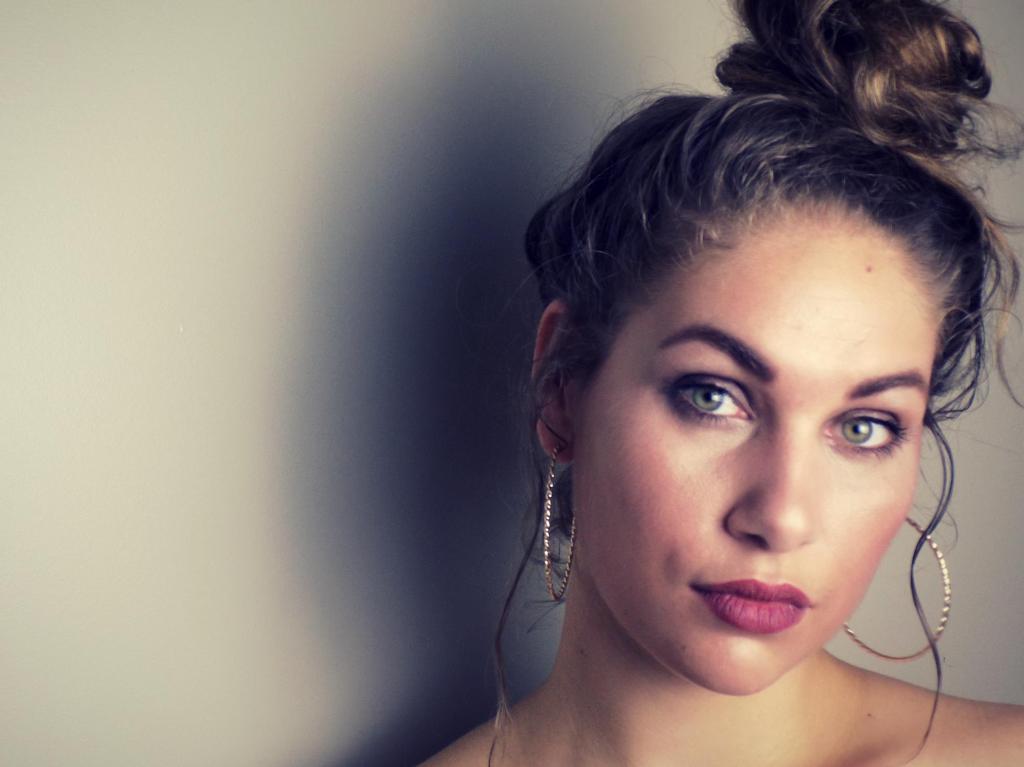Image: Musician, poet and lyricist, Teila Watson aka Ancestress. Supplied.
Celebrated for creating authentic narratives, First Nations women artists are unafraid to speak their truths.
‘I think it’s important because not a lot of people do,’ said musician, poet and lyricist, Teila Watson aka Ancestress.
A Birri Gubba and Kungalu Murri woman, Ancestress deconstructs what it means to be a First Nations young person living in Australia today.
In her song ‘Bring Buildings Down’, she raps melodically about exploitation and colonisation: ‘I hear the chain forever clinking … Their chains no longer got a hold of me.’
Her lyrics are intelligent, interrogative and unapologetically honest. ‘I think for me it’s natural. I grew up in a very political family, in a very political environment and I have been raised with a very political mind. And so my work is political. I guess you could say it’s an extension of my identity and of my experience,’ she told ArtsHub.
‘There’s not a lot of attention on these issues from someone with my perspective. Within the blackfella community of course we have a lot of politics; a lot of really incredible thinkers and a lot of really incredible speakers. But I think there’s still a lot of ignorance – there’s still a lot of people out there who don’t access or acknowledge my ancestors.’
Ancestress’ was honoured earlier this year by the Australia Council of the Arts, receiving the prestigious Dreaming Award – presented to an inspirational young Aboriginal or Torres Strait Islander artist aged between 18 and 26.
Awards allow artists to take control of their stories
Bolstered by the honour, Ancestress’ next focus is an album that will deconstruct and analyse the problems we all face: climate change; First Nations’ sovereignty; the unequal distribution of power; governance from a First Nations’ perspective, and the destruction that colonialism has and is still causing.
‘When I found out I was receiving the award I thought a lot about what drew me to art – art is a way I can be self-determining. It’s a way I can have a sense of control over a narrative, because that’s not something Aboriginal people get to experience in this country,’ she said.
‘We are living in a country that is still being colonised. There is still a sense of war in this country. Having art is a way I can express myself – I can be self-determining. I can create a different narrative for myself and for others.’
Another outstanding First Nations artist honoured by the Australia Council of the Arts (in partnership with the Macquarie Group) is independent curator Freja Carmichael.
Receiving this year’s Macquarie Group First Nations Emerging Curator Award, Carmichael’s practice honours and elevates the artwork of First Nations people.
‘My work centres on the promotion and preservation of Aboriginal culture through visual art platforms and I have strong interest in fibre and weaving traditions,’ she said.
Carmichael impressed the public with her curatorial work on the exhibition Gathering Strings at Queensland’s Redland Art Gallery, where the focus was on celebrating the continuation and revival of fibre traditions.
Currently, Carmichael’s exceptional ability to multi-task sees her working with Redland Art Gallery and BlakLash Collective; she is also part of the international curatorial team for The Commute Project being developed at the Institute of Modern Art, Brisbane.
Carmichael shows no signs of slowing down and is looking forward to connecting with more artists and their diverse practices.
‘I hope to expand my knowledge further on fibre traditions across our diverse cultures,’ she explained. ‘I am continuously learning and being inspired through my curatorial work and I love that each project embodies new relationships and connections with artists, communities and places.’
Carmichael encourages young artists to ‘be very open to new opportunities and learning experiences, you never know where the pathways may lead.’
Ancestress also addressed First Nations and Non-First Nations young people, telling them: ‘Keep trying, keep growing, and take feedback. Allow for people to pull you up when you are doing the wrong thing or when you are not sure.’
While recognising there will always be people who will try to dismiss your goals and dreams, she said: ‘Stay connected – always try to empower yourself through knowledge. I think mostly for other blackfella artists it’s so important to appreciate your culture and your elders. Always seek guidance and never undervalue your connections to your culture or your country, and never undervalue what our mob has to offer and what our people have had to offer for the last 70,000 thousand years or so.’





